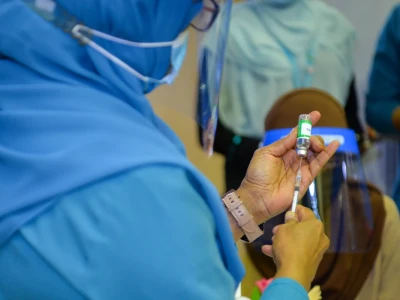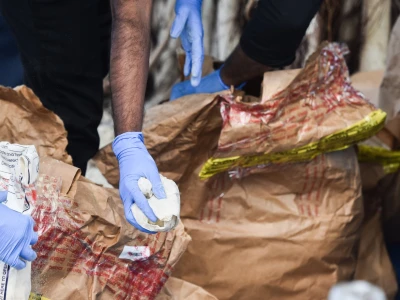
Lacking legal framework major challenge to drug problem: Imad
Apart from the way the legal framework is structured, Imad spoke about the other challenges in the case.
Top Stories
Imad Solih, the new CEO of the National Drug Agency (NDA), has said that the biggest challenge in solving the drug problem is the lack of a proper legal framework.
In an exclusive interview with Atoll Times last week, Imad spoke about the flaws in the country's drug problem-solving system:
-
The way the world perceives the whole drug issue has changed drastically
-
If science and findings suggest that a total solution to this problem is found, it is important to consider it from the perspective of a very serious health problem and to ensure that treatment programs and the system as a whole adhere to that vision.
-
World Health Organisation (WHO), the UNODC, and other international organisations, institutions, and countries have accepted it and are also trying to change the legal framework of countries to suit it.
"Even in the country, I believe that the biggest challenge at the moment is that the legal framework is not 'aligned' here, when I’ve taken over. So it is recognised as something that needs to be improved," said Imad, who took over as the CEO of the NDA, whose post has been vacant for almost a year on 1 November .
While the law is being framed to address the drug problem, the main thing that needs to be changed is, according to Imad, the health 'approach' adopted, which he says should also be evident through the law.
"Instead of the National Drug Agency building centres and running centres, we are doing this from a healthcare point of view, we can use health facilities, health centres and tertiary hospitals across the country to connect the treatment system with the healthcare system and the law should endorse that," he said.
Apart from the way the legal framework is structured, Imad spoke about the other challenges in the case. Imad pointed out that the difficulties of setting up rehabilitation centres in remote islands, where adequate health services are not available, is also a major challenge in providing treatment services.
"It is something that the state needs to consider in the future. If [rehabilitation] facilities are being operated in the atolls, there should be adequate health care facilities," Imad said.
Pointing out that skin disease and bone problems are common among drug addicts, Imad said:
-
In a rehabilitation centre, there should be specialised doctors who can treat common health issues
-
Other basic needs must be met
-
At the same time, we need to change the perception that the issue of drugs and combating it is solely the responsibility of the NDA
-
The overall solution to the problem cannot be found unless the enforcement agencies, ministries and concerned agencies work together with the community
"The whole world see’s drug abuse for the health issue it is, and if the Maldives aligned their thinking, then all the aforementioned stakeholders involved in the entire case need to understand it and give the highest possible level of support holistically," Imad said.




